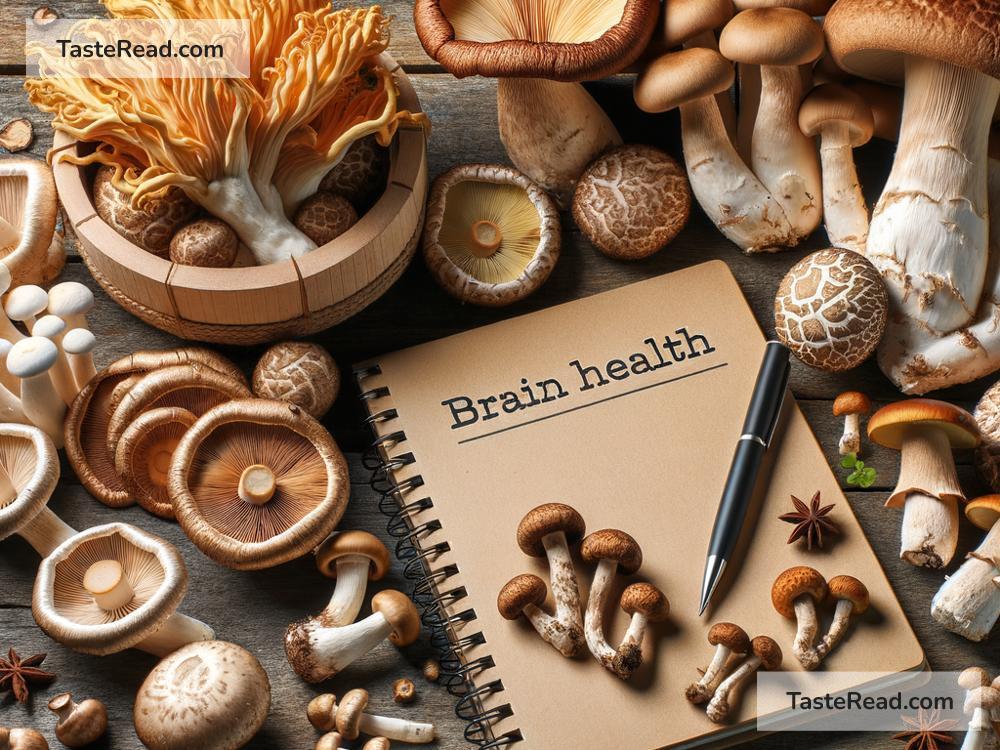Can Mushrooms Help with Brain Health?
When we talk about foods that benefit our health, mushrooms may not get as much attention as fruits, vegetables, or nuts. However, mushrooms are unique and can be quite powerful, especially when it comes to supporting brain health. You may have heard about “magic mushrooms” that affect the mind, but our focus here is on common, non-psychedelic mushrooms that you can safely add to your diet. Let’s dive into how these fungi may help keep your brain healthy and sharp.
Mushrooms Are More Than Just Food
Mushrooms are not plants, but fungi. They have been used for centuries in cooking, medicine, and even traditional rituals. In the world of nutrition, mushrooms are praised for their vitamins, minerals, and antioxidants. And scientists are now exploring their potential to improve brain health.
How Mushrooms Protect the Brain
Mushrooms contain compounds that can help protect and improve brain function. Here are some ways they can make a difference:
-
Antioxidant Superpower
Our brain is sensitive to damage caused by free radicals. Free radicals are unstable molecules that can harm cells and speed up aging. Mushrooms contain powerful antioxidants, such as ergothioneine and glutathione, that help fight free radicals and reduce inflammation. By calming inflammation in the brain, mushrooms could play a role in preventing memory loss and slowing down age-related diseases like Alzheimer’s. -
Anti-Aging Benefits for the Mind
Certain mushrooms may slow down brain aging. For example, a study found that people who ate more mushrooms had a lower risk of mild cognitive impairment (MCI), a condition that often leads to dementia. This effect might be linked to the high ergothioneine content in mushrooms. Ergothioneine is considered a “longevity vitamin” because it helps protect cells and tissues from damage. -
Improved Brain Signals
Mushrooms also have the ability to influence how neurons in your brain communicate. One mushroom in particular, lion’s mane mushroom, is known for this. Lion’s mane mushroom contains compounds called hericenones and erinacines, which may help grow and repair neurons. Neurons are the “messengers” in your brain, allowing you to think, learn, and remember. Supporting these messengers could boost memory and mental clarity. -
Support for Mental Well-Being
Alongside brain health, mushrooms may improve your mood. Studies suggest that some mushrooms, like reishi, may help with stress and anxiety. Reishi mushrooms are adaptogens, meaning they help your body adapt to stress and promote balance. When your stress levels are under control, your mind feels clearer and sharper.
Types of Mushrooms That Are Good for Your Brain
While almost all edible mushrooms provide some nutrients, certain types are especially beneficial for the brain. Here are the top picks:
-
Lion’s Mane Mushroom: Famous for promoting neuron growth and repair. Great for memory, focus, and learning.
-
Reishi Mushroom: Known for its calming effects and ability to reduce stress.
-
Cordyceps Mushroom: Boosts energy and may improve brain endurance.
-
Shiitake Mushroom: Rich in antioxidants that protect against cell damage.
-
Porcini Mushroom: High in ergothioneine, which protects the brain from aging.
Combining these mushrooms with other nutritious foods can maximize their benefits.
Can Mushrooms Prevent Brain Diseases?
While mushrooms show potential for protecting the brain, they are not a cure or guaranteed prevention for diseases like Alzheimer’s or Parkinson’s. However, research has been promising. For example, scientists at the National University of Singapore found that people who ate mushrooms at least twice a week had lower odds of experiencing cognitive decline. This doesn’t prove mushrooms can stop brain diseases, but it does suggest they can reduce risk and improve overall brain health.
It is also worth noting that other lifestyle factors matter. Eating mushrooms alone won’t keep your brain in great shape if you ignore exercise, sleep, mental activity, and a balanced diet. Mushrooms should be just one part of your strategy for keeping your mind sharp.
How to Add Mushrooms to Your Diet
Adding mushrooms to your meals is simple and delicious! Here are some ideas:
- Slice button, shiitake, or cremini mushrooms for stir-fries.
- Add porcini mushrooms to soups for extra flavor and nutrients.
- Try lion’s mane mushroom as a meat substitute in burgers or tacos.
- Brew reishi or cordyceps mushroom tea for a calming, healthful beverage.
Mushrooms are versatile and blend well with many dishes. Plus, they’re widely available in grocery stores and markets.
Conclusion
Mushrooms are more than just a tasty ingredient – they offer impressive benefits for brain health. Packed with antioxidants, anti-inflammatory compounds, and neuron-supporting properties, these fungi can help protect your brain from aging and may lower the risk of cognitive decline. While researchers are still learning more, it’s clear that eating mushrooms is a smart choice for your mind.
So, next time you cook, consider adding mushrooms to your plate. Whether you sauté them in olive oil, toss them into a pasta, or blend them into a smoothie, you’re giving your brain the nutrients it needs to stay healthy and strong. Start small, try different types, and see how they can brighten both your meals and your mind.


